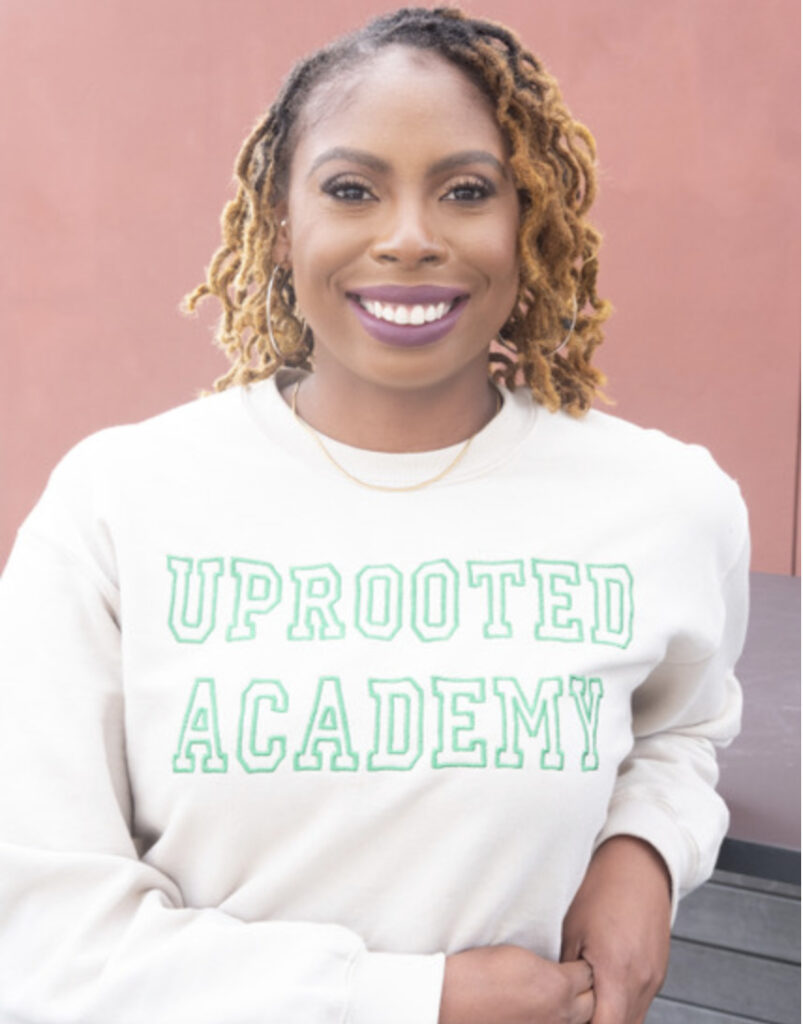At the core of America’s growing income inequality is a perennial question: How can we help level the college access playing field between low-income, first-generation students and their wealthier classmates? Federal TRIO programs help, but they serve just a small percentage of the millions of students who qualify.
Enter former first-generation student, TRIO alumna, and entrepreneur Tiffany Green. She has developed a high-tech approach to help under-resourced students navigate the daunting college admissions process.
Green is the founder and CEO of Uprooted Academy. Its platform combines dozens of conversational videos explaining different components of the application process, which high school students can access at any time, along with digital workbooks. The tech platform’s 24/7 availability addresses low-income, first-generation students who need to work or help at home, with little time to attend college prep seminars. “The most popular time to access the videos is 11 pm,” Green said.
Company analytics show that 70 percent of users finished 70 percent of the content, with students from the class of 2022 spending an average of 90 hours on the app.

Based in New Haven, CT, Green is 35 years old and a licensed psychotherapist, former teacher, college counselor, and admissions evaluator. Her technology covers dozens of college application topics, such as how to write a successful student essay, evaluate a college website, and financial literacy.
The platform supports organizations that already have college counseling in place. Green’s company has contracts with school systems, individual schools, and TRIO programs around the country. In return, their high school seniors may use the platform for a year.
“When working with first-generation students, the information gap is wide,” Green said. “You have to explain concepts over and over. Counselors get burned out because they are explaining things multiple times.” The website’s step-by-step information for students helps alleviate the anxiety and fear that the multi-step college application ordeal triggers in students, particularly those who are the first in the family to face this challenging process. “We are the only college platform that combines mental health with college prep,” Green said.
Green explained that when faced with a daunting challenge, “our nervous system will either fight, flee or freeze. And no population experiences fear over the college application process like low-income, first-generation students,” she said. Students experiencing this anxiety may seem to teachers or other adults like they don’t care, but they do; inside, they are trying to cope with their fear.
“It’s not that first-generation students and students of color are not working hard,” Green said. “They are working wrong. They don’t know how to be competitive. We want to mirror what wealthier students have when they go to a college application boot camp.”
Green is in many of the videos, giving information laced with pep talks. “Excitement and anxiety are cousins – two sides of the same coin,” she says in one. She also addresses the lack of confidence many students feel. “Put shame aside,” she says in another. “Just because you don’t know something, don’t feel like you should know it. You don’t, so it’s OK.”
“I want low-income, first-gen students to have the same shot as wealthier students,” she said.
Green’s professional expertise and today’s technology may help her do just that.